Diabetes Care Plan: Psychological, Cultural, and Spiritual Support
VerifiedAdded on 2022/10/04
|7
|557
|469
Presentation
AI Summary
This presentation addresses the critical importance of psychological, cultural, and spiritual considerations in the care of diabetes patients. It explores how a diabetes diagnosis often leads to stress and various emotional responses, necessitating psychological support through evaluation and training of patients to cope with the challenges. The presentation also highlights the influence of cultural and spiritual beliefs on treatment adherence and lifestyle choices, emphasizing the need for culturally competent healthcare providers and faith-based interventions. It provides examples such as the impact of cultural attitudes on treatment preferences and the role of spiritual practices in managing the condition. The presentation suggests practical strategies for integrating these aspects into a comprehensive care plan, enhancing patient outcomes and overall well-being.
1 out of 7
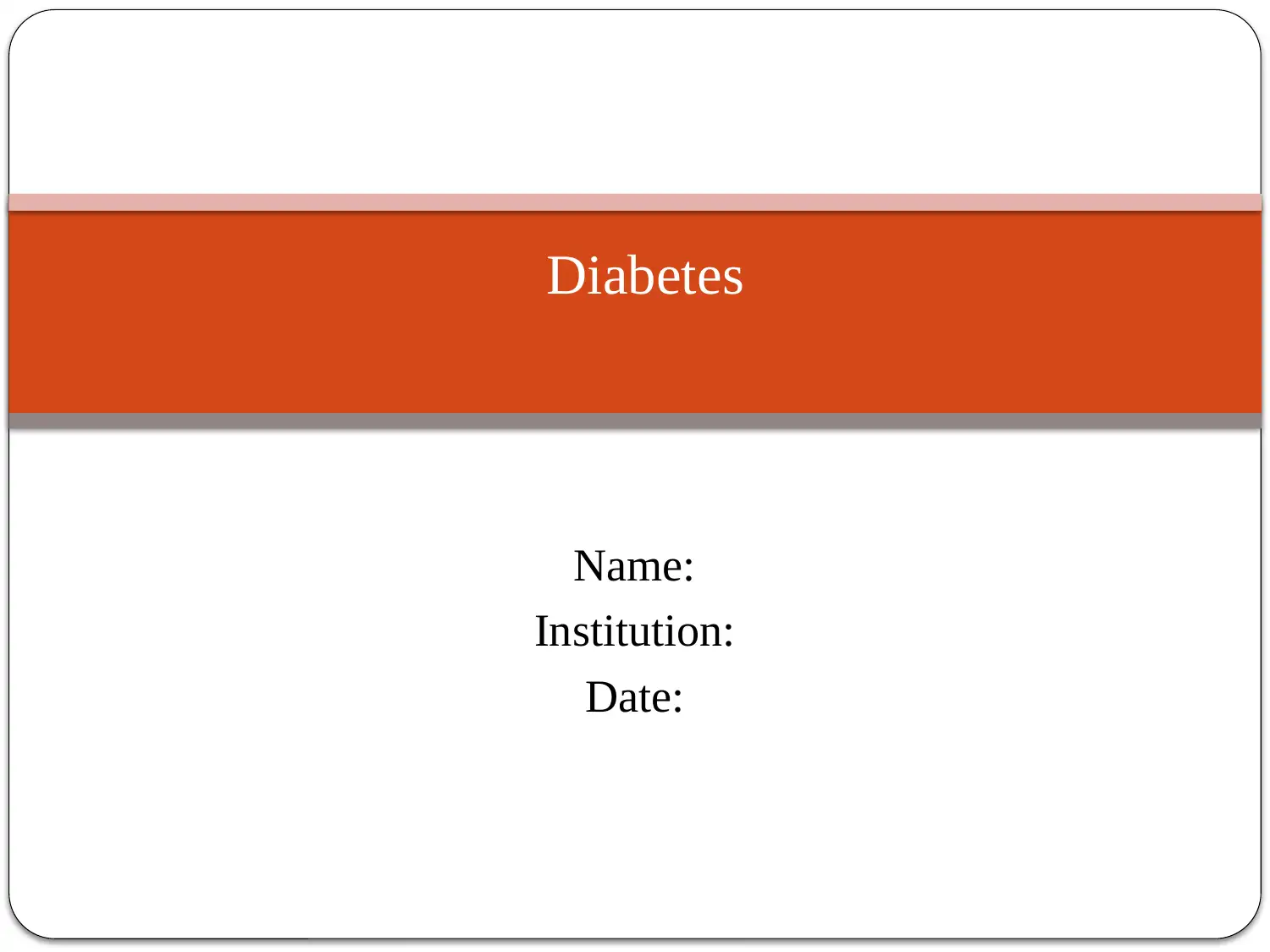
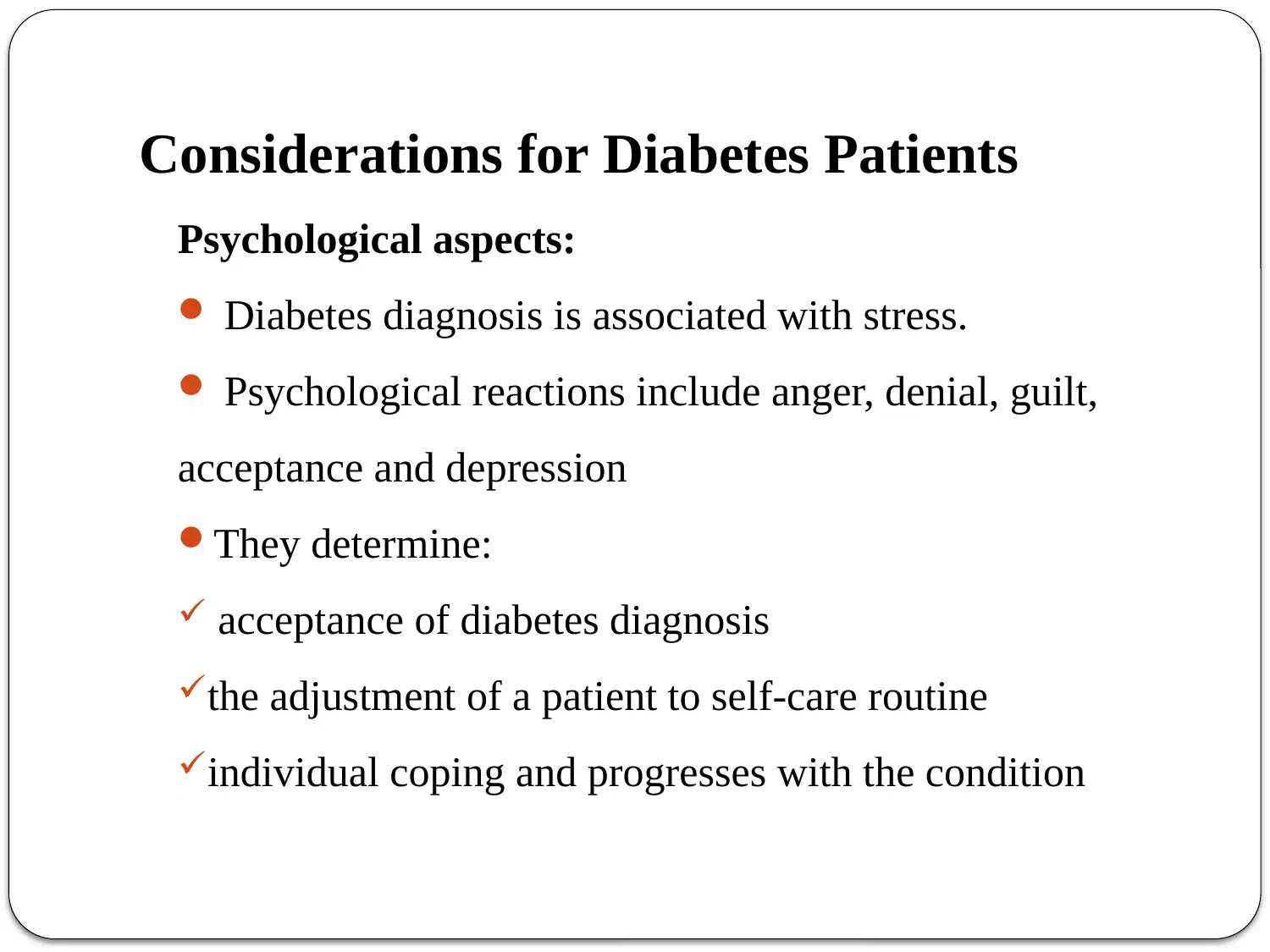
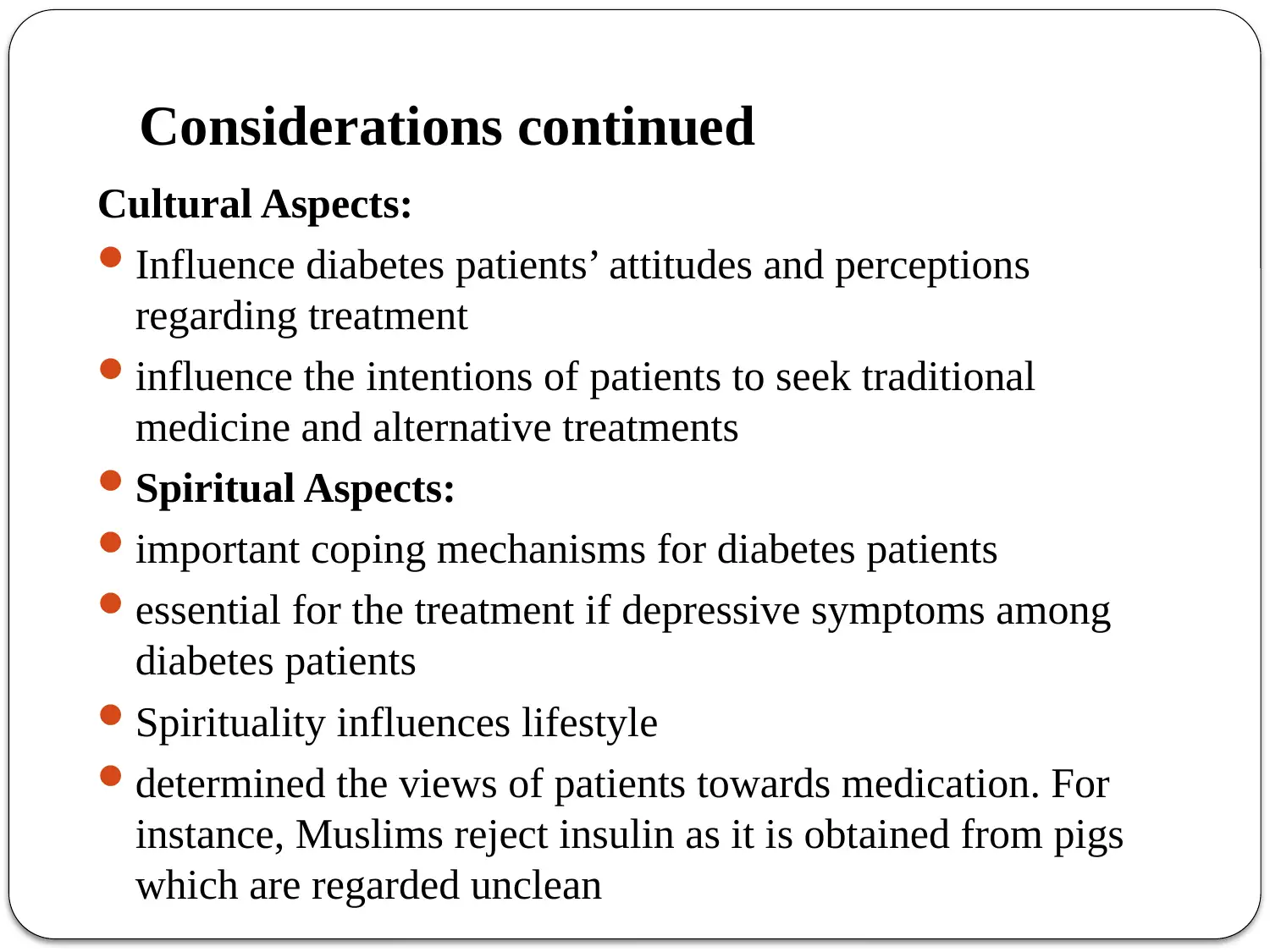

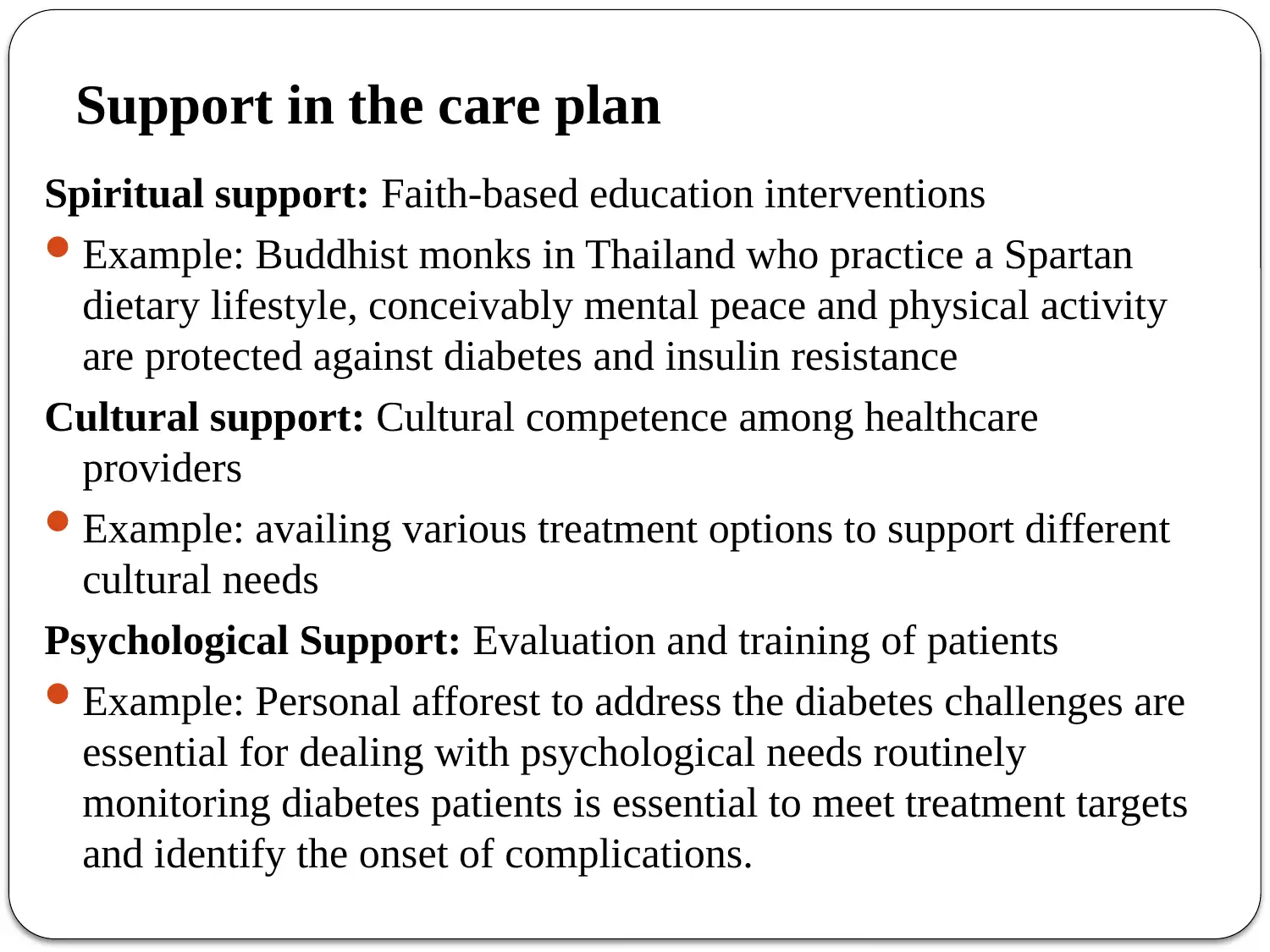
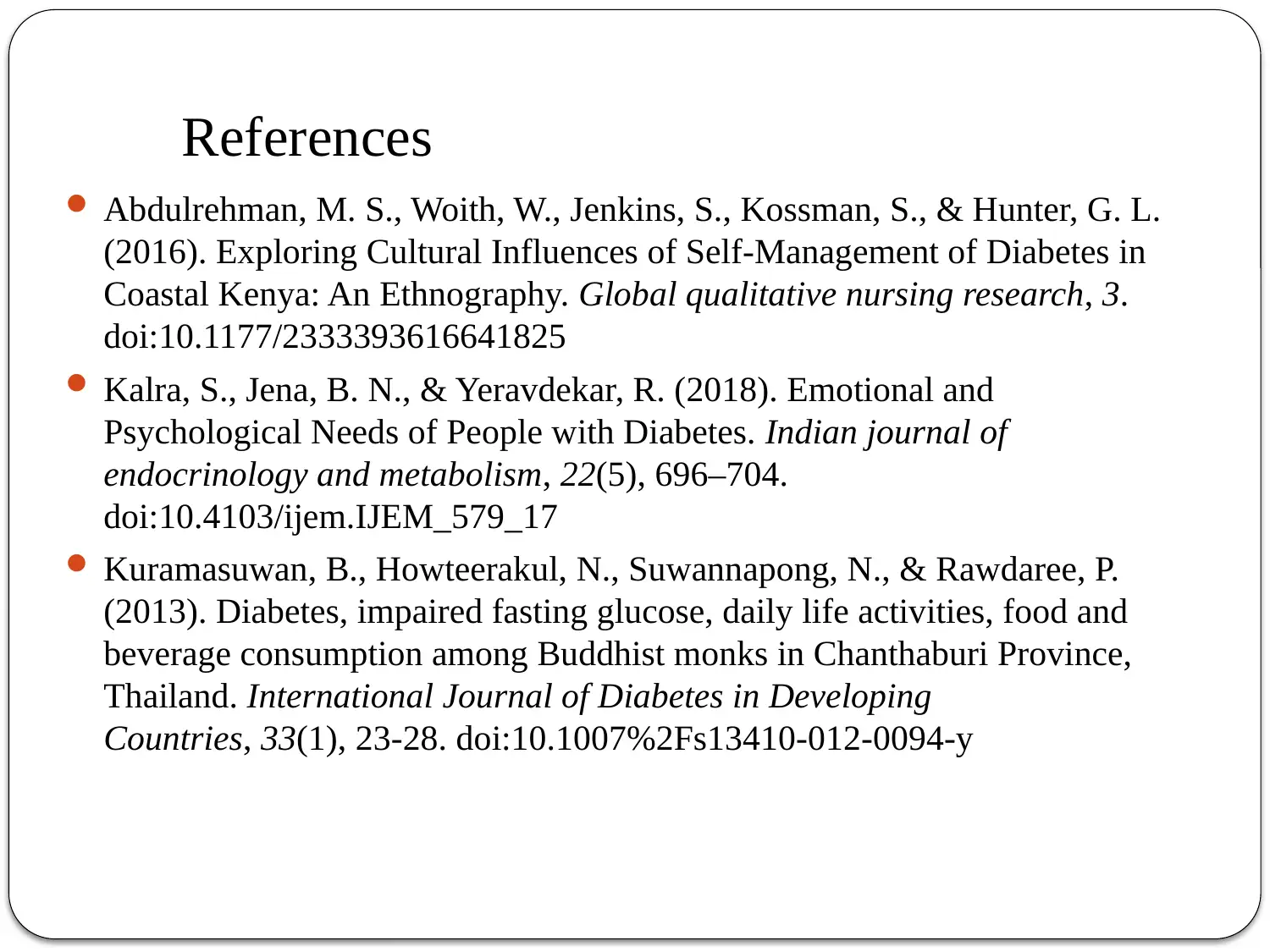
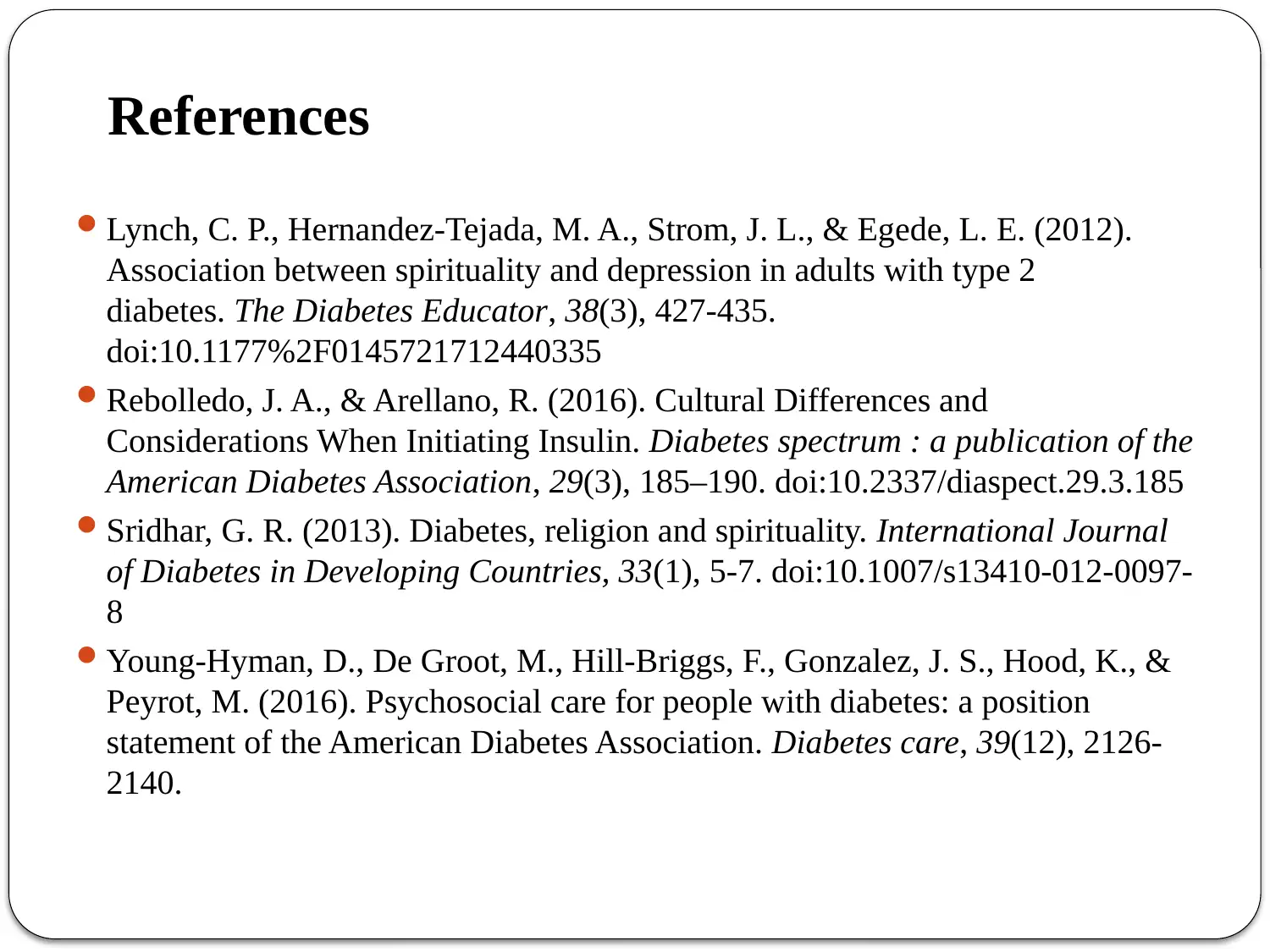
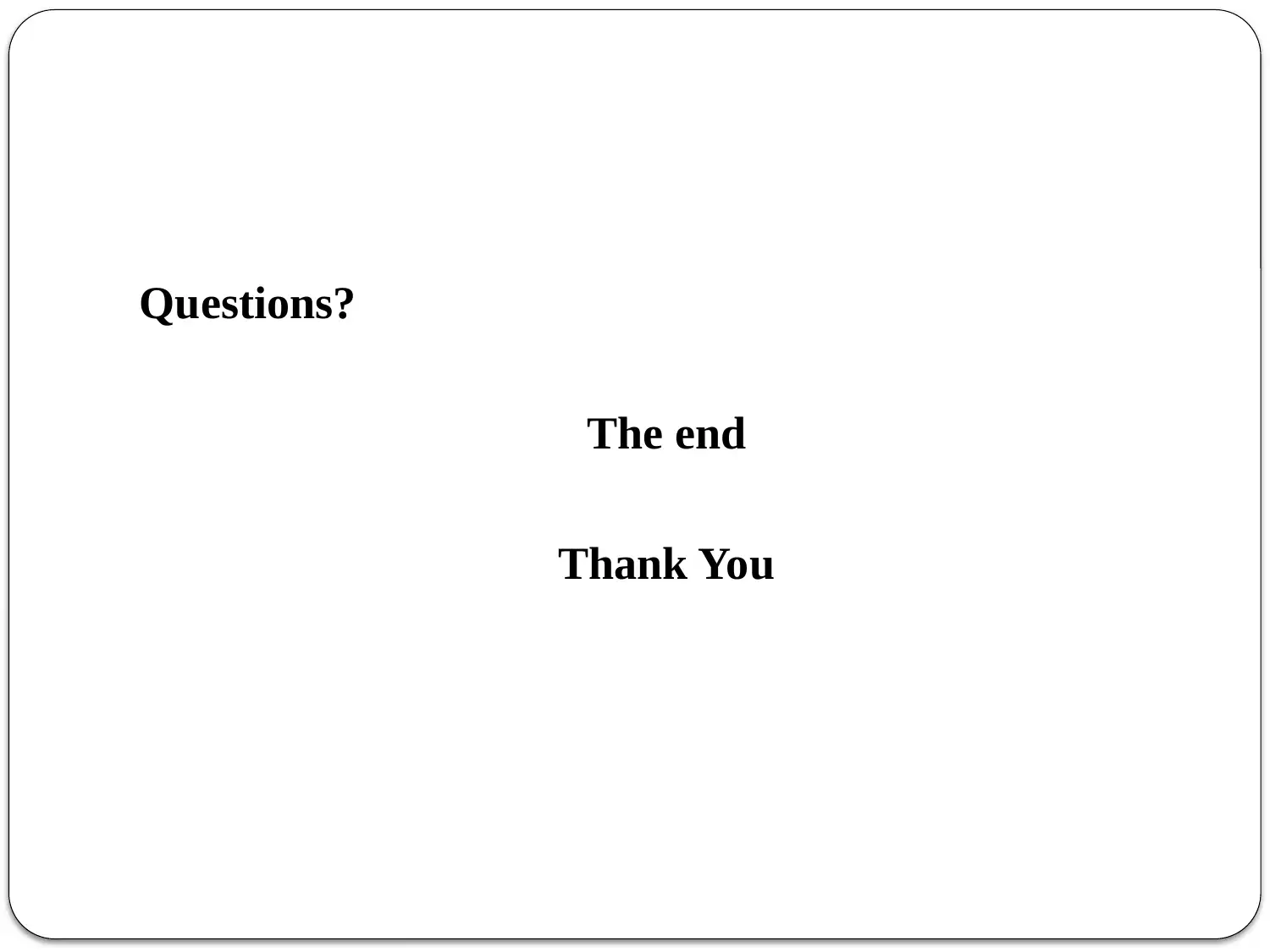






![[object Object]](/_next/static/media/star-bottom.7253800d.svg)